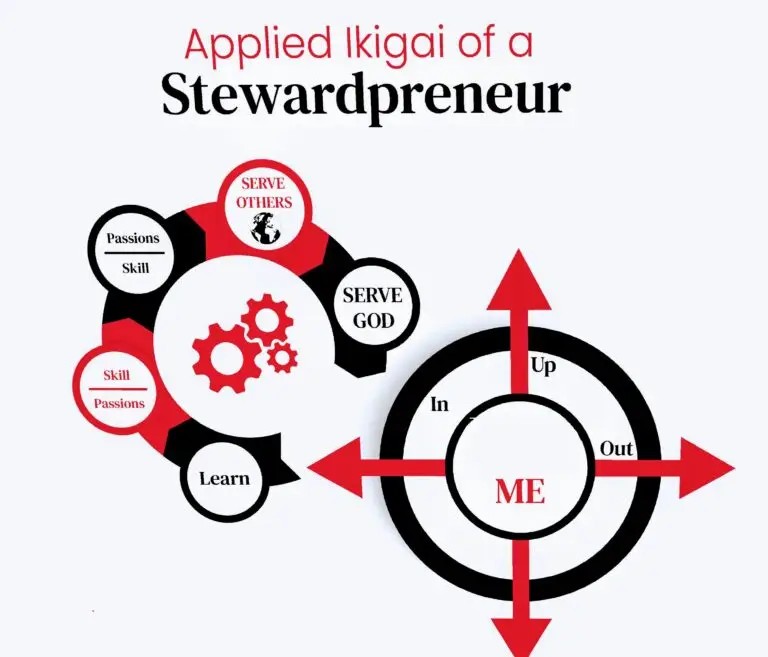As Christian men, we are called to be good stewards of the gifts and resources that God has entrusted to us. This includes our time, talents, and treasures. The concept of Stewardpreneurship extends the idea of Ikigai, challenging us to use our God-given passions and skills to serve others and make a positive impact in the world.
Ikigai: The Intersection of Purpose, Passion, and Stewardship
In the quest for happiness and fulfillment, one concept that has gained significant traction is Ikigai. Originating from the Japanese culture, Ikigai represents the intersection of four fundamental elements: what we love, what we are good at, what the world needs, and what we can be paid for. It is the sweet spot where purpose, passion, and stewardship converge. In this article, we will delve deeper into the concept of Ikigai, exploring how it can serve as a guiding principle for individuals seeking to find meaning and purpose in their lives. We will also discuss the transformative power of Ikigai in the context of Stewardpreneurship, a model that emphasizes using our God-given talents and resources to serve others.
Ikigai: The Journey to Purposeful Living: Many people spend their lives searching for their purpose, often feeling unfulfilled and dissatisfied. Ikigai provides a framework for discovering our purpose by aligning our passions and talents with the needs of the world.
The first component of Ikigai is “what we love.” This refers to our passions, the things that bring us joy and energize us. It is crucial to identify and nurture these passions, as they form the foundation of our purpose. However, passion alone is not sufficient; we must also be good at what we do.
This brings us to the second component of Ikigai: “what we are good at.” By recognizing our strengths and talents, we can leverage them to make a meaningful impact in the world.
The third component of Ikigai is “what the world needs.” This involves identifying the problems and challenges that exist in our communities and society at large. By understanding these needs, we can direct our efforts towards addressing them. Lastly, Ikigai incorporates the practical aspect of “what we can be paid for.”

